As part of the implementation of the Quality Assurance and Financial Management of Smallholder Agroecology Systems from Farm to Fork (AQSAEP) Project, Les Jardins de l’Espoir organized a workshop in Ouidah to present the diagnostic study and validate the AQSAEP charter.
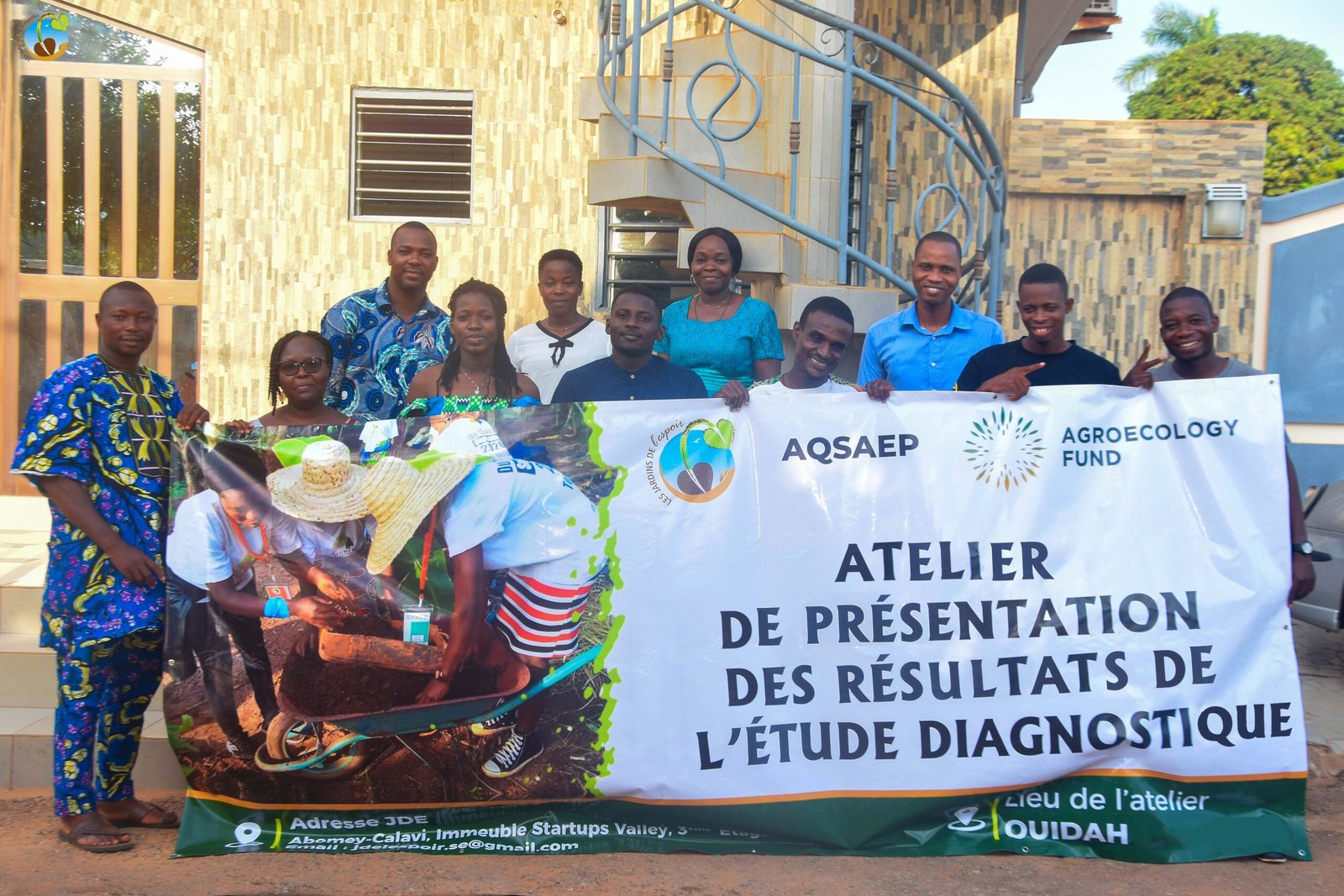
Funded by the Global Greengrants Fund (GGF) on the recommendation of the Agroecology Fund (AEF), this project aims to ensure a healthy and sustainable production and consumption system for both consumers and producers.
The workshop brought together several agroecology stakeholders, including female farmers from the communes of the Atlantique department. According to Noël Obognon, Executive Director of Les Jardins de l’Espoir, market access and product quality remain major challenges for agroecological producers. For this reason, diagnostic studies were conducted to map agroecological actors and identify existing practices.
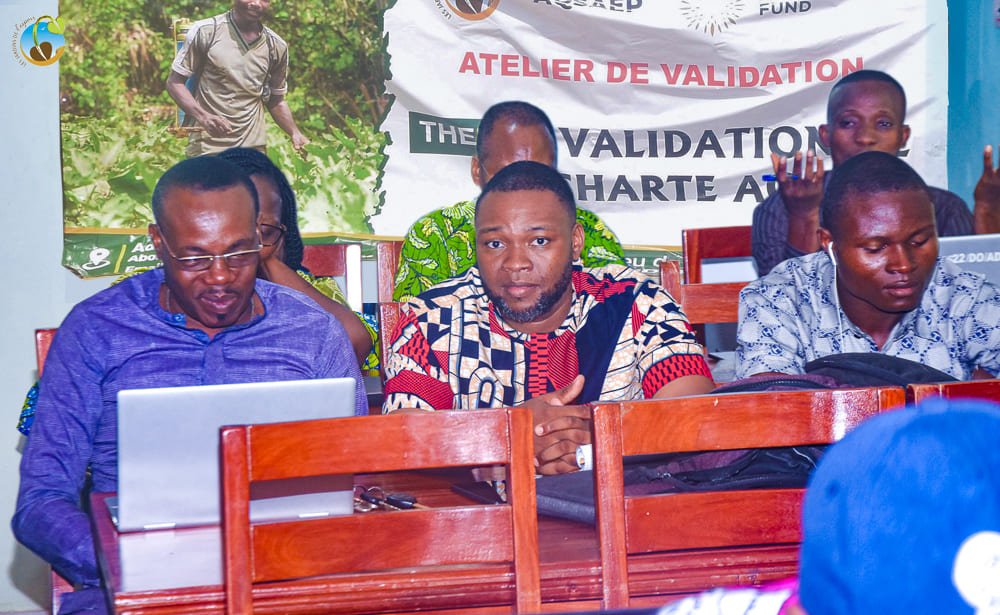

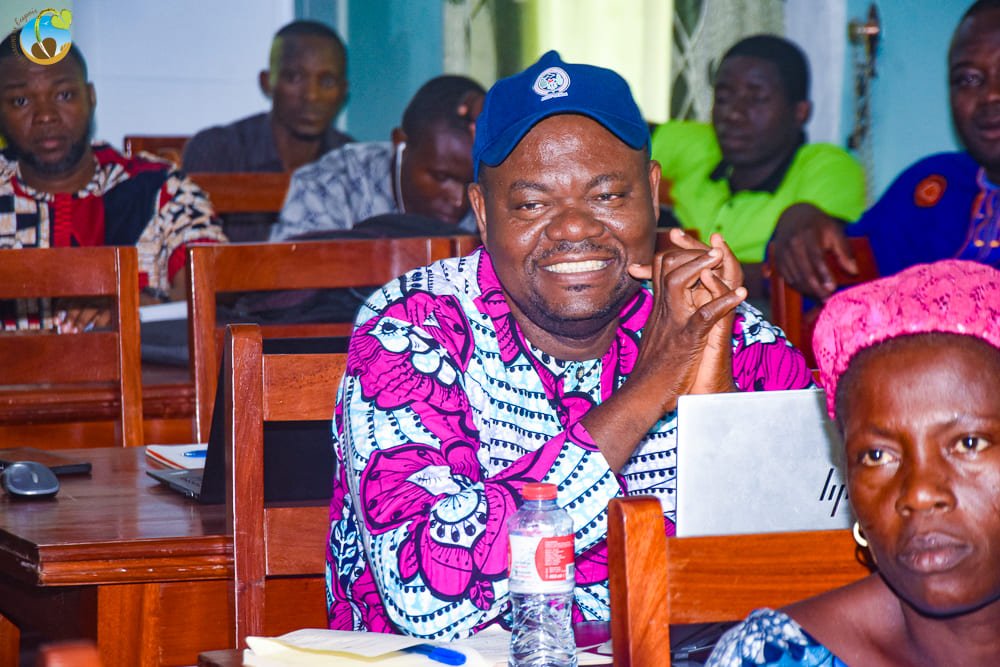
Building on these efforts, the workshop also introduced the charter of agroecological practices, designed to guide farmers towards sustainable methods. “As part of this Quality Assurance and Financial Management project, we have trained 100 women, mostly vulnerable young mothers, but we believe this is not enough. We have observed that women are determined to follow agroecological technical routes,” he explained.
A techno-economic framework to structure the sector
One of the key outcomes of the project is the development of a techno-economic reference study for the agroecological development of a plot over one year. This document, presented during the workshop, outlines the technical and economic measures necessary for the successful operation of an agroecological farm. According to Moukaila Bagui Bouraima, consultant for the study and agronomist specializing in agroecology and crop protection, “This reference document is unique and innovative as it will serve as a guide for farmers to develop and enhance their crops.”

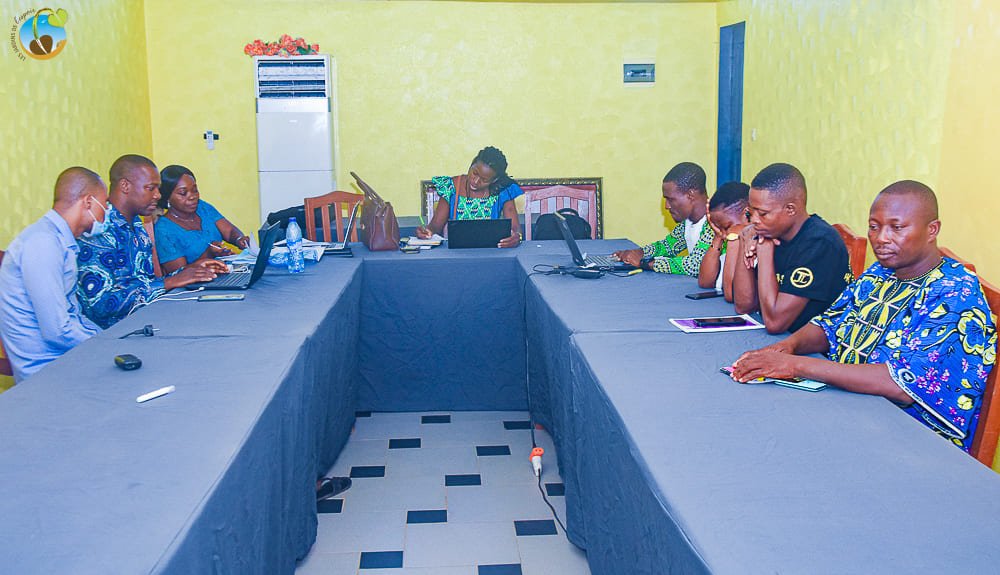
This viewpoint is shared by Pierre Bédié, President of the Benin Agroecology Federation (FAEB), who emphasized the importance of documenting the realities on the ground. He highlighted the need for continued support for stakeholders and called for government backing of the agroecology movement.
For his part, Charles Nfotta, from the NGO Culture, Education, and Research for Development in Benin, believes that the agroecological practices charter developed under this project represents a significant step forward. “It will help regulate the sector and better identify true agroecology practitioners,” he explained.
Germain Dossou, agroecology expert and Coordinator of the National Association of Women Farmers of Benin, praised the work done by Les Jardins de l’Espoir. “The presented results demonstrate that remarkable work has been accomplished. Contributions from various stakeholders will help refine and improve them,” he stated. He also suggested extending the initiative to other communes in Benin and beyond, urging all actors to implement the proposed agroecological measures to contribute to Benin’s food security.
A key to recognizing agroecological efforts
Recognition of the efforts made by producers also depends on the certification of agroecological products, a crucial issue according to Bertrand Yehouenou, President of AMARRE Benin and member of the National Agroecology Consultation Framework for Global Convergence. “This project addresses the challenge of identifying agroecology actors and their practices. In the context of climate change, farmers must return to traditional practices, which are essentially agroecological methods. These practices are resilient to climate change, and certifying the products derived from them will ensure their competitiveness in the market,” he emphasized.
Women farmers at the forefront of change
Project beneficiaries also shared their experiences. Gisèle Gnanssounougué, a farmer from Tori, expressed her satisfaction: “Since Les Jardins de l’Espoir has been supporting us, our practices have improved. They have provided us with equipment and tools. Our main challenge remains access to water, but we are committed to sustaining the knowledge gained within our cooperatives.”
Similarly, Kantchemè Claudine, a beneficiary from Ouidah, noted: “We now grow vegetables without chemical inputs. Our products are healthier, help preserve consumer health, and increase our income—all thanks to the Les Jardins de l’Espoir project.”
For Houeze Pauline from So Ava, agroecological practices have proven beneficial. “My crops grow naturally, and I have observed increased productivity. Our consumers now trust our products and understand that agroecological products are safe,” she affirmed.
Faced with these encouraging results, Hubert Dognon Tchoukpéni, former Director of the Department of Agriculture, Livestock, and Fisheries, commended the initiative of Les Jardins de l’Espoir and urged the government to further support the production and accessibility of organic fertilizers.
A field visit to assess project progress

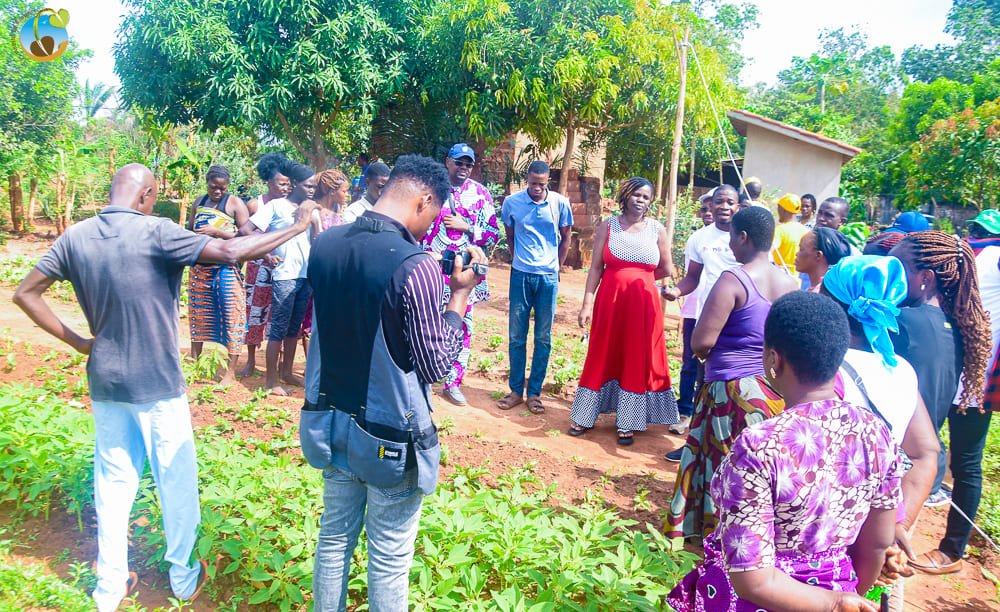
The workshop concluded with a field visit led by a team of agronomic experts to the project’s model farms. The tour, which started in Ouidah and continued through Tori, Allada, and So-Ava, before ending in Godomey Togoudo, provided an opportunity to assess the concrete impact of the project on agricultural operations. Visitors witnessed firsthand the compost made on-site using cow dung and goat digestive waste, among other agroecological techniques, leaving them deeply impressed by the remarkable work accomplished.
This visit, marking the final stage of the AQSAEP project activities, also paves the way for a better structuring of the agroecology sector in Benin. Thanks to the efforts of Les Jardins de l’Espoir and its partners, a sustainable dynamic is emerging to promote environmentally friendly and economically viable agriculture, particularly for women producers.
It is worth recalling that several workshops were held in preparation for the validation of this charter, which will serve as a guiding framework for farmers in Benin’s agroecology sector.
Mahugnon Josué TCHAGNONSI

